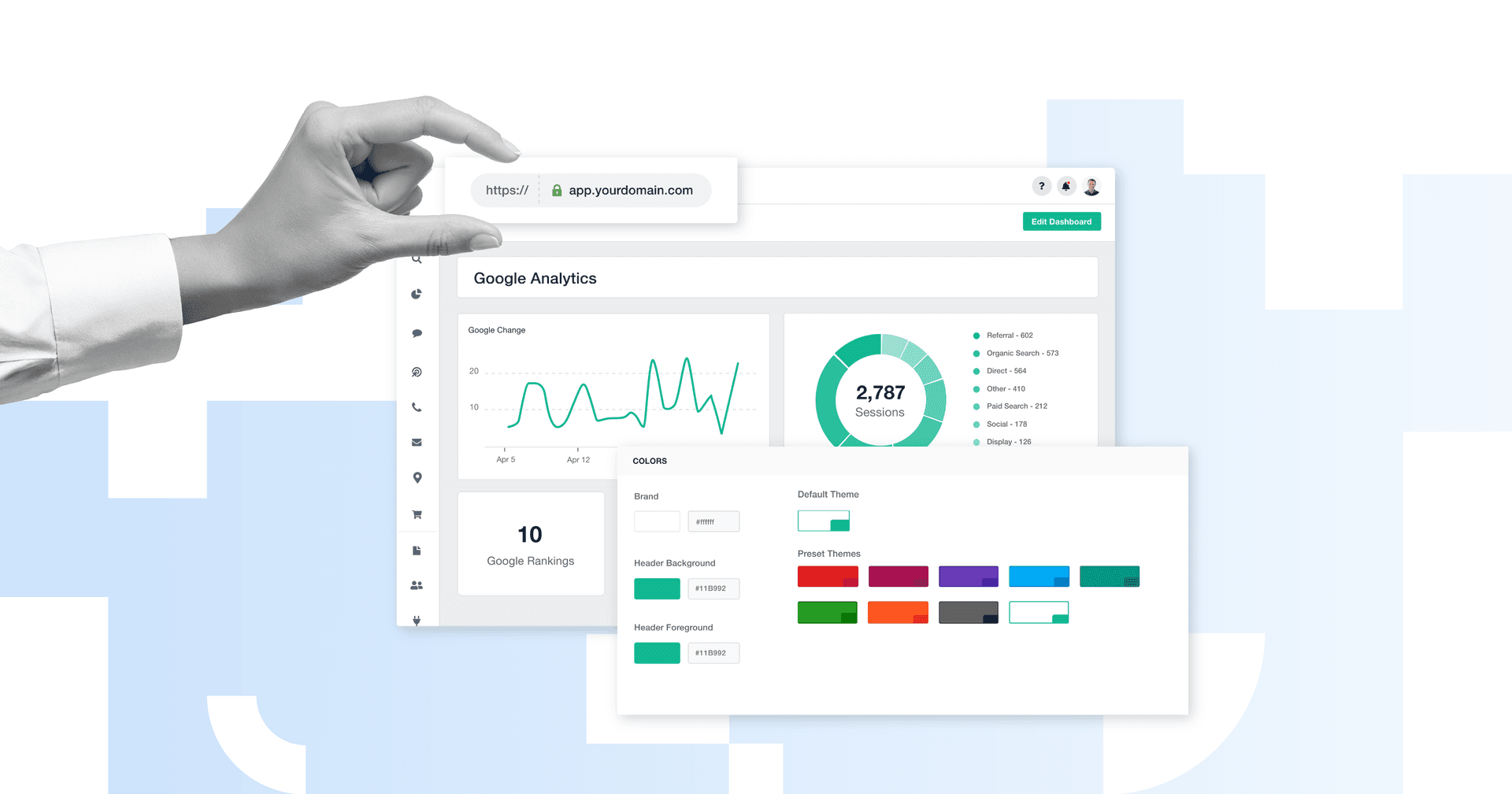Table of Contents
QUICK SUMMARY:
Flexible roles offer employees control over their work schedules, enhancing productivity and job satisfaction. As marketing agencies shift towards flexible jobs, benefits include remote work, flexible hours, and paid time off. This approach improves work-life balance and employee retention.
As we emerge from the pandemic, it's becoming increasingly clear that the traditional 9-5 office-based work model is a thing of the past. Agencies are now embracing a more flexible approach to work, which allows employees to have greater control over their work schedules while still achieving high-quality results.
At Ireland Website Design, we believe that offering options such as maternity and paternity leave, flexible hours, job sharing, compressed workweeks, and sabbaticals helps to create a more supportive work environment that reduces stress, increases productivity, and promotes employee retention.
By trusting our employees and fostering a culture of flexibility, we are paving the way for a brighter, more agile future of work. Here's why.
What Does Workplace Flexibility Look Like?
By allowing more flexibility in the workplace, agency owners can promote a healthier work-life balance and, in turn, have happier employees that are more engaged and productive. It means giving employees the right to choose how, when, and where they work with benefits like:
Remote or hybrid work environments–where employees alternate between working from home and going to the office
Flexible hours, or even a 4-day work week
Paid Time Off (PTO) for holidays
Paid sick days for mental or physical wellness
More variety in roles and responsibilities
Solving Employee Retention with Remote Work
Employee retention is another matter that became apparent during the many Covid lockdowns and still remains today. Reports show that in 2022, just 21% of workers felt fulfilled and satisfied at work. Essentially, only 1 in 5 employees are happy at their jobs.
When you think about the amount of time a typical full-time employee spends at your agency, it’s no wonder talent retention has become such an issue. So if you're on the fence about adopting a hybrid working situation, consider this: 1 in 5 agencies have gone 100% virtual. And studies report a 13% increase in employee productivity when working remotely.
Flexible Roles Need Flexible Employers
Between whispers of hiring freezes mixed with the reality of employee retention, the face of the agency hiring sphere has become a little unclear and anxiety-inducing for some. The truth is that agencies are still hiring in 2023. Things just look a little different post-pandemic.
Since people have been set free from the confinements of their desks, a whole new world of opportunity has opened up for agency workers and employers, as people can work for anyone from anywhere in the world.
This has made the job market more competitive. It’s harder to get hired for jobs, but it’s also harder to hang onto employees as there are so many other opportunities out there for the most talented and in-demand workers.
The shift towards a more flexible hybrid working model has resulted in a need for flexibility in other areas too, such as offering flexible hours and flexible job roles. To hold onto talented employees, you must keep them happy.
And the key to happiness at work? Well, think about what keeps you satisfied in your professional life–flexibility and trust! Trust is integral to any agency hoping to operate a flexible model. In order for these setups to be successful, there has to be trust both ways.
This extends beyond the employer trusting that their staff will complete good work on time. Employees need a space to feel trusted by their employers–trusted to make mistakes, learn, and hold themselves accountable.
Why Should Agencies Hiring More Flexible Roles in 2023?
As well as offering remote or hybrid working and flexible hours where possible, agencies are now looking to offer more flexibility with regard to job descriptions and responsibilities. When people are stuck doing one thing in their work, it can quickly become mundane and uninspiring.
This results in either sub-par work due to apathy and boredom, or else they will up and leave for something more exciting. People need to feel valued and stimulated professionally to remain invested and produce good quality work. A more fluid role that encompasses a variety of tasks rather than a rigid job title allows people the space to explore more of their talents and feel engaged at work.
The good news for agency owners is that not only does this add value to your employees' professional life, but it also adds value to your business! Hiring talented workers to fill more flexible positions means hiring fewer people to do a broader spectrum of work. The employees you do have will also be happier in their work and therefore more productive.
Let’s take a look at why agencies are hiring flexible roles in 2023 and how this model benefits them.
1. Healthier Employees, Better Output
Employee stress has reached an all-time high over the past three years. As many of us know from personal experience, working efficiently and without error is much harder when you are under extreme stress. And Covid really brought the importance of looking after our well-being into perspective, physically and mentally.
The employer is responsible for reducing their employees' stress–or at least minimizing the potential for work-related stress. When we work together as a team to look after our colleagues, we become stronger as an agency. Our professional bonds strengthen, and our employees feel more capable and empowered to do good work. A lovely win-win for all!
2. Keeping Up With an Ever-evolving World
As discussed in my other post on how Gen Z is breaking the marketing agency model, the marketing industry has experienced a dramatic change in recent years, especially since the pandemic.
Gen Z has a massive hold on the market and consumerism. Conducting most of their shopping online, mainly through social media, eCommerce has had to act accordingly. For agencies to effectively communicate with and reach the massive Gen Z audience, they require an insider understanding of their online culture and a firm hold on apps like TikTok, Instagram, Snapchat, and Pinterest.
Flexibility is key when it comes to keeping up with the constant and rapid evolution of online marketing. A fixed job role just won’t cut it anymore. To remain relevant, responsibilities need to grow and respond to market demands accordingly and without delay.
3. Cast a Wider Net for Talent
While many offices offer a hybrid working model with employees spending a certain amount of days in the office and the remainder working from home, some agencies offer fully remote roles.
While a fully remote role can present its own bumps in the road, it also allows the employer to cast a much wider net for even more skilled and experienced talent. Seeing as most meetings take place over Zoom and other remote tools these days anyway, why limit yourself to solely looking for prospective employees locally?
This is especially beneficial to businesses operating from smaller cities or towns as it allows them access to an even bigger pool of people and a higher chance of finding the perfect fit for the role and their team.
4. It’s More Profitable
As mentioned above, employees perform better overall when they have flexibility in their jobs and schedule. Here are a few ways in which operating a more flexible business can benefit you financially:
Increased productivity: Employees work more efficiently from home, meaning you’re paying for better quality work.
Fewer sick days: When they’re feeling up to it, employees can work from home rather than calling in sick.
Lower rent: Lots of businesses have downsized their offices thanks to remote working, saving them hefty rent checks.
Employee satisfaction: Your employees are more likely to feel encouraged to work harder when they receive the benefits and access to the lifestyle they desire.
Bottom Line: A Flexible Working Model Is Mutually Beneficial
Your agency is only as good as the staff it has. Having happy, confident, and empowered team members is key to a thriving business. When you boil it down, it becomes clear that offering flexibility at work is equally advantageous for both the employer and the employee.
Are you looking to hire new talent this year? Consider whether what you’re offering is competitive enough in today’s employee market. This will help you find the right talent for your position so you can hopefully maintain your working relationship for many years to come and can grow together.
Thinking of transitioning to becoming a remote agency? Read more about what agency owners had to say about going remote.

Written by
Nick Butler is the founder of Ireland Website Design, an eCommerce digital agency specializing in solutions for retailers, and LearnRight, an online learning management system for organizations and businesses.
Read more posts by Nick ButlerSee how 7,000+ marketing agencies help clients win
Free 14-day trial. No credit card required.






